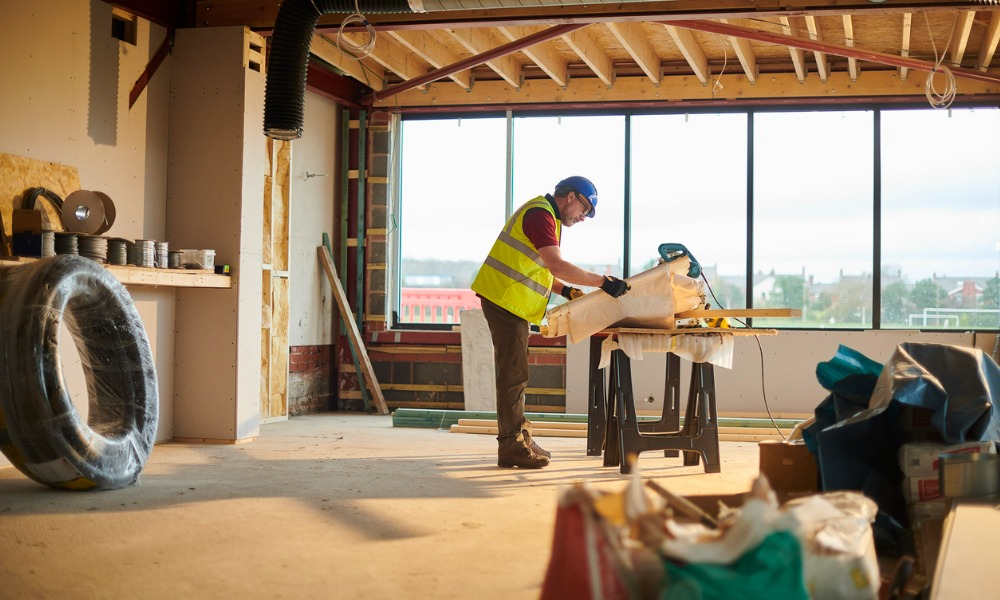If you think the grass is greener on the other side, think again

If you think the US building industry is experiencing tough times, you might want to take a look at Canada, Australia and New Zealand. Bottom line: The grass isn’t greener over there.
Mortgage Professional America recently spoke to Russ Stephens, co-founder of the Association of Professional Builders to get a sense of how America’s building woes compare to those found elsewhere. APB, as it happens, represents builders from each of those countries, yielding a global perspective on macroeconomic issues the world over.
The US has led the pack in terms of rising rates, Stephens noted, and fears of a recession have spooked the markets. Exacerbating those intangibles are the all-too-tangible materials (particularly lumber) that has been backlogged as a result of supply chain issued, he noted – and let’s not forget the labor shortage. In neighboring Canada, the country has been hit hard with the type of supply chain issues that have frustrated their counterparts in the US, Stephens said.
You think that’s bad? In New Zealand, they’re dealing with lack of plasterboard. “It’s been materials in New Zealand, and it has been a massive problem,” Stephens said. “They literally ran out of plasterboard in the country. At one point, they were rationing it rather than giving them [builders] what they needed which meant virtually no one could finish the job. It caused severe problems.”
Read more: Homebuilders: Use rise-and-fall clauses to prevent financial loss
Indeed, no less a figure than New Zealand Prime Minister Jacinda Ardern expressed dismay over the anemic supply of residential building supplies – particularly plasterboard – which led to formation of a Plasterboard Taskforce. Along the way, the stranglehold over the use of plasterboard for structural bracing was broken, business news site Interest reported.
The dearth of plasterboard gave rise to SaveBOARD, Interest reported, for the better part of the year. Its one factory in New Zealand has been cranking out some 500 boards each day from discarded coffee cups, milk cartons, commercial waste and other rubbish, the site reported, and plans to open its first Australian plant next month backed by a substantial government grant.
The environmentally conscious company has ambitious business plans, according to Interest, with a growing global interest from Asia to Israel. The firm sent a container of product to Chile, the site reported, and the goal now is to open one new plant each year. The company produces a plasterboard product that being seen as a potential solution to mitigate New Zealand’s reliance on branded plasterboard, Interest said.
Of the countries represented by the APB, Australia may be the one suffering the most to hear Stephens tell it. Bear in mind that Australia has no so-called cost escalation clauses to begin with, yielding no reprieve against rising material prices as builders aren’t able to pass the added cost to their clients.
“Australian builders hit hard times a lot earlier than the US,” Stephens told MPA. “They have no escalation clauses. That’s why Australia is so unique in the world. It’s part of the culture not to put in cost escalation clauses. That means the market won’t tolerate them.”
Read next: Five signs of a building company’s health explained
In contrast, the US, Canada and New Zealand have escalation clauses, Stephens noted.
“When construction costs went up so quickly, it’s caused a lot of builders to rapidly fly through the different stages of decline to the point that we’ve seen a lot of large building companies collapse this year with millions of dollars in the bank.”
Given rising construction costs, some companies have opted not to start on the contracts at all, Stephens said: “They’ve simply liquidated the company with millions and millions of dollars in the bank.”
In a June headline, the World Socialist Web Site termed it a “construction industry bloodbath,” detailing how a number of building companies have been placed into administration and liquidation, owing millions of dollars to owners of unfinished homes, subcontractors, suppliers and workers in entitlements.
In June, Victorian-based builder Snowdon Development was ordered by the country’s Supreme Court to go into liquidation on the grounds of insolvency, the news site reported. The company owned just under $18 million to some 250 creditors, the site said.
The Snowdon collapse was one of several that occurred in June. One of those unable to stay afloat was Victorian-based Waterford Homes, which went into liquidation after filing debts amounting to $600,000, according to the news site.
So, no. In the building sector at least, the grass is not greener on the other side.



